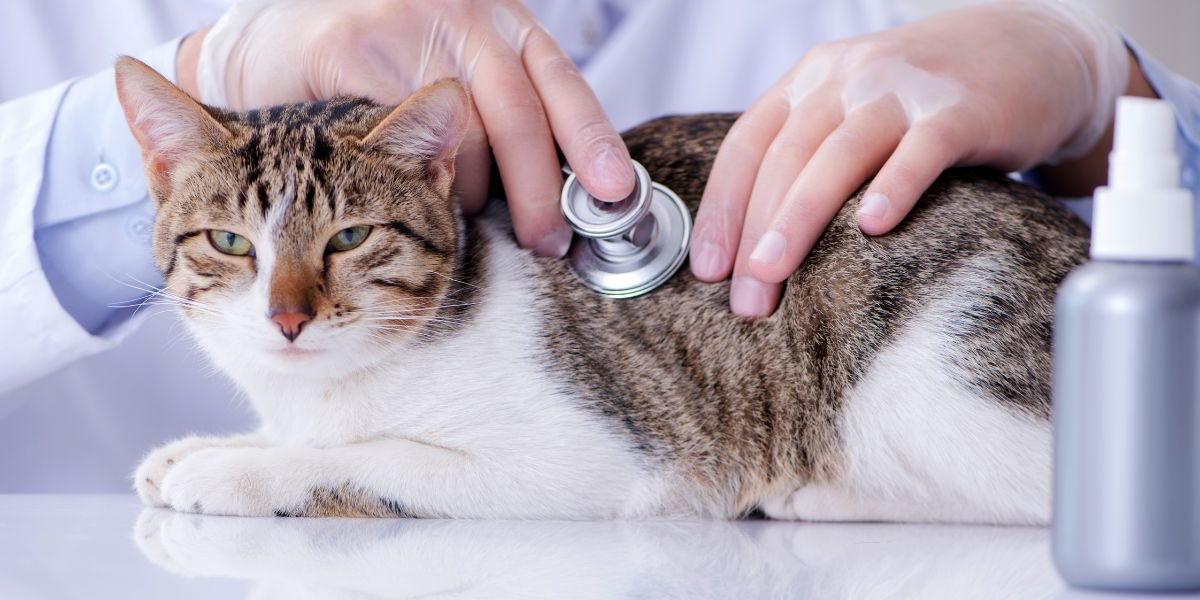
If you've noticed your feline friend acting a bit off lately, it might be time to consider their health. Changes in their usual habits could be subtle hints that something isn't quite right. From their eating patterns to grooming behavior, cats have ways of communicating that might indicate they need a closer look. Stay tuned to discover more about the signs your cat may need a health checkup.
Changes in Eating Patterns
If your cat suddenly starts eating significantly more or less than usual, it may be a sign that they need a health checkup. Changes in eating patterns can indicate various underlying health issues that require attention. An increase in appetite, known as polyphagia, could point towards conditions like diabetes, hyperthyroidism, or even stress. On the other hand, a decreased appetite, also known as anorexia, might be a sign of dental problems, kidney disease, or infections. Monitoring your cat's eating habits is crucial as it provides valuable insights into their overall well-being.
When your cat's eating patterns change, it's essential to consult with your veterinarian promptly. They can conduct a thorough examination to identify the root cause of the issue and recommend appropriate treatment. In some cases, dietary adjustments or medication may be necessary to address the underlying health condition. Remember, changes in eating behavior should never be ignored, as they could be early indicators of more significant health concerns. By staying vigilant and proactive, you can ensure your cat receives the care they need to stay healthy and happy.
Altered Grooming Behavior
Your cat's altered grooming behavior can signal potential health issues that require attention. Cats are known for their meticulous grooming habits, so any changes in this behavior should be taken seriously.
If you notice your cat grooming excessively or, conversely, grooming less frequently, it could indicate an underlying problem. Excessive grooming might be a sign of skin irritation, allergies, or even stress. On the other hand, reduced grooming could point to pain or discomfort that your cat is experiencing.
Another red flag to watch out for is if your cat stops grooming certain areas altogether. Neglecting to groom specific areas could signal pain or mobility issues in those areas. Additionally, if you observe your cat struggling to groom itself, it might be due to dental problems, arthritis, or obesity making it challenging for them to reach certain parts of their body.
Monitoring your cat's grooming behavior and seeking veterinary advice if you notice any significant changes can help catch potential health issues early and ensure your cat receives the necessary care.
Unusual Vocalizations or Aggression
Unusual vocalizations or aggression from your cat may indicate underlying health issues that require attention. Cats are generally quiet creatures, so if your feline friend suddenly starts meowing excessively, hissing, growling, or displaying uncharacteristic aggression, it could be a sign that something is wrong. These changes in behavior might be a way for your cat to communicate pain, discomfort, fear, or stress.
Excessive vocalizations can be a sign of various health problems, such as dental issues, hyperthyroidism, or even cognitive dysfunction in older cats. Aggressive behavior could also stem from pain or illness. It's important to observe the context in which these vocalizations or aggression occur. If your cat is usually friendly but becomes aggressive when touched in a certain area, it could indicate pain in that specific area.
If you notice your cat exhibiting unusual vocalizations or aggression, it's best to schedule a checkup with your veterinarian. They can help determine the underlying cause and provide the necessary treatment to ensure your cat's health and well-being.
Physical Symptoms to Watch For
Watching for physical symptoms in your cat is vital for detecting potential health issues early on. Keep an eye out for any changes in your cat's appearance or behavior that could indicate an underlying problem. One common physical symptom to watch for is changes in your cat's weight. Sudden weight loss or gain could be a sign of various health issues, such as hyperthyroidism or diabetes. Additionally, pay attention to your cat's coat. A dull, unkempt coat could signal nutritional deficiencies or skin problems.
Another important physical symptom to monitor is your cat's bathroom habits. Any changes in urination or bowel movements, such as frequency or consistency, should be noted as they could indicate kidney disease or gastrointestinal issues. Furthermore, keep an eye on your cat's eyes, ears, and mouth for any redness, discharge, or unusual odors. These could be signs of infections or dental problems that require veterinary attention.




